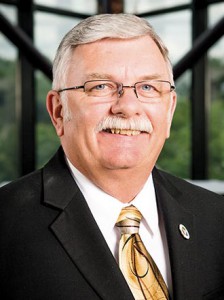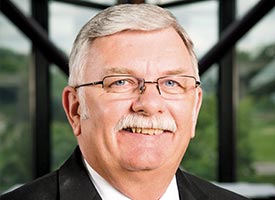By Michael Kumm
The Lutheran—Church Missouri Synod’s Board of Directors (BOD) is a group that is often heard of but seldom understood.
Currently, all members are elected by the Synod in convention (although the Bylaws allow for the BOD to appoint up to three additional members) and they serve six-year terms (with a maximum of two consecutive terms).

Many times there is confusion as to the role and responsibility that the BOD has been given by our Constitution and Bylaws, but clarity and transparency are two things the BOD finds very important, and it is our intention that you expect the same.
So, what does the BOD do? The Board serves as the directors of The Lutheran Church—Missouri Synod, Incorporated, a Missouri not-for-profit corporation. As identified in the LCMS Constitution, it also serves as the BOD of the Synod, the “association of self-governing Lutheran congregations and all its agencies on the national and district levels” (Bylaw 1.2.1(u)).
The BOD is constitutionally charged to be the legal representative of Synod — supervising all things financial — and to be the custodian of all property of the Synod. The Board oversees the business side of our church body with limited involvement in programmatic and ecclesiastical matters.
We accomplish our work through the Synod’s Chief Administrative Officer and the Chief Financial Officer (CFO). In other words, the Board handles the corporate business of Synod while leaving the theological and church-related issues to the president and the Council of Presidents — comprised of all the presidents of each of the Synod’s 35 districts, the president and vice-presidents of the Synod.
Over the past couple of triennia, the BOD has seen many changes. The restructuring of the Synod, mandated by the 2010 Synod convention, even affected the BOD. The Board is now smaller than it used to be by three members, and all of the lay members are now elected from the five regions to ensure proper representation on the Board.
Our members come from a variety of backgrounds and are highly skilled in their respective vocations. They include pastors, business owners, publishers, attorneys, bankers and more. The president and secretary of the Synod are ex-officio members of the Board as well, and the first vice-president is a non-voting member of the Board.
This group of people brings with it an excellent compilation of skill sets from which we can draw expertise as we work with the president to meet the needs of our church body. We have a Board that has been consistently collegial in working toward common goals without the distraction of “taking sides” and disruption. I have been very proud of the Board over the past five years, especially with regard to the highly professional manner in which the business of our church body has been conducted.
The BOD has the sole responsibility of overseeing personnel, budgets, assets and legal matters. Over the past two triennia, we have seen a dramatic increase in the efficiency by which funds are raised for Synod use. The cost to raise funds has been reduced by nearly 3 percent while we have seen an increase in unrestricted support, revenue and gains of some 18 percent since 2010. Total program expenses and general and administrative expenses are down 45 percent since 2010, while our net assets increased by some 3 percent. We also have seen reduced internal borrowing. Changes in personnel policies, strict budgeting and attention to detail have assisted the BOD in working with the CFO and other unit executives to maintain a budget that is consistently in the black.
The Concordia University System (CUS) works very closely with the LCMS BOD in the custodial care of our higher-education institutions. The BOD was instrumental in finding a solution to keep our university at Ann Arbor, Mich., operating at its finest. Working with Concordia University Wisconsin (CUW), a joint venture was established that benefited both campuses. This work by the BOD with the CUS entities was innovative in keeping facilities and programs in place for the future of our church and educational system. Cooperation with CUW and Concordia University, Ann Arbor, exemplifies the life together we share as the Synod.
The Board works with the legal firm of Thompson-Coburn LLP of St. Louis, which serves as the Synod’s general counsel. They have repeatedly proven themselves worthy advocates for the LCMS. Although we in the Church do not expect lawsuits or legal problems, they do occur, and as a result, we must deal with them. We work diligently with districts, congregations, schools and other entities to make certain we are completely within our corporate and state-law restrictions in our operations. That hard work in ensuring our compliance has resulted in no losses in any lawsuit brought against us. We have also reduced our legal expenses and have seen a substantial reduction in lawsuits.
The Board works closely with the other Synod entities as well. Concordia Publishing House, Lutheran Church Extension Fund, Concordia Plan Services and the LCMS Foundation are all partners in the work of our church body. The BOD, together with these entities, seeks solutions to issues within our Synod and strives, together with the president, to put these solutions in place.
Working together with President Harrison, his staff and the elected officers of the Synod, the Board is dedicated to keeping our Synod fiscally sound and in compliance with all state and federal laws. It is not an easy job, and we remain grateful for its elected members and for the substantial amount of time they give freely to serve.
Learn more about the Board and see who the specific members are by checking out the BOD portion of Synod’s website at http://lcms.org/board.
The Rev. Michael Kumm is pastor of Holy Cross Lutheran Church, Dakota Dunes, S.D., and chairman of the LCMS Board of Directors.
Posted Dec. 30, 2014
